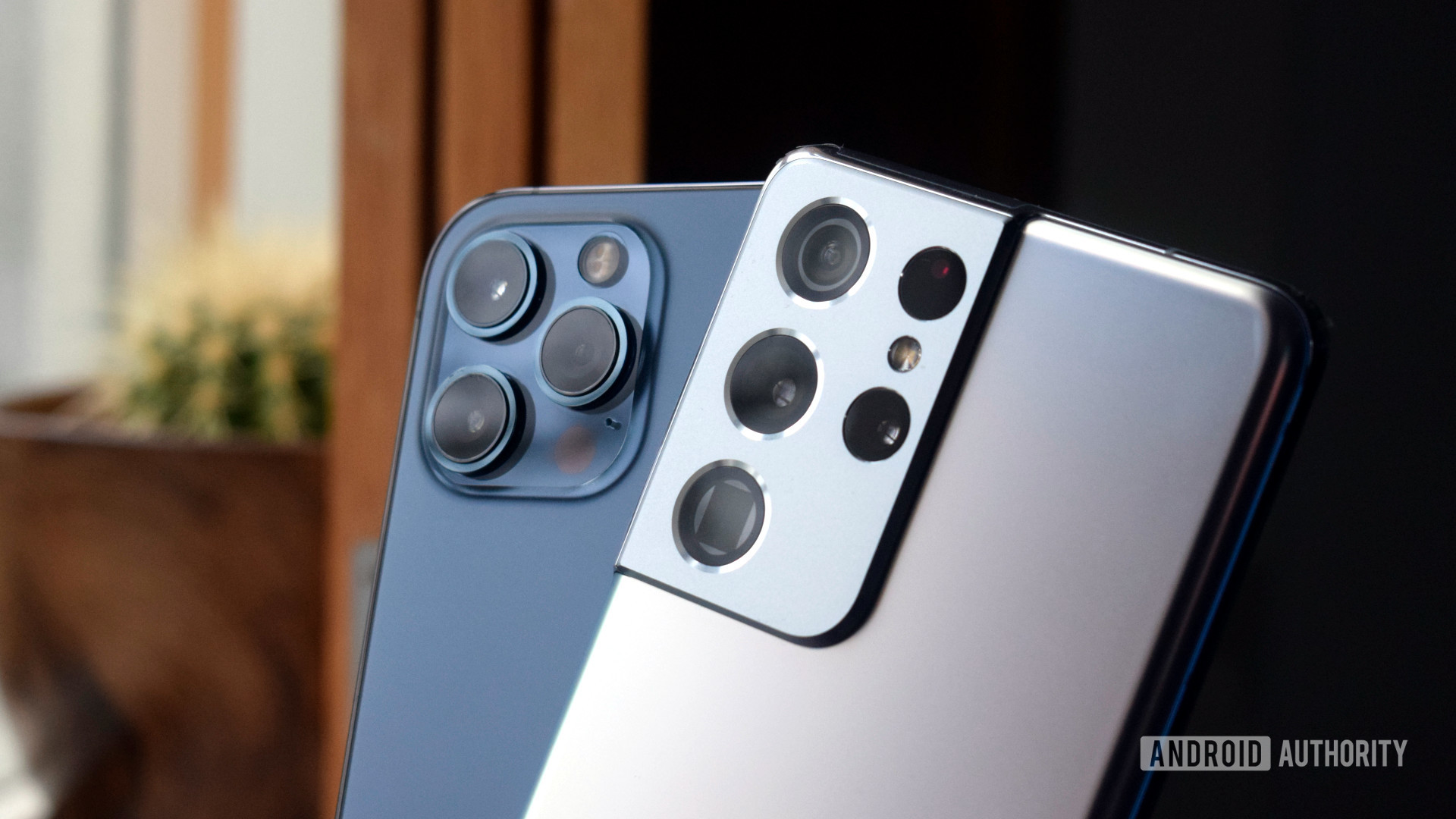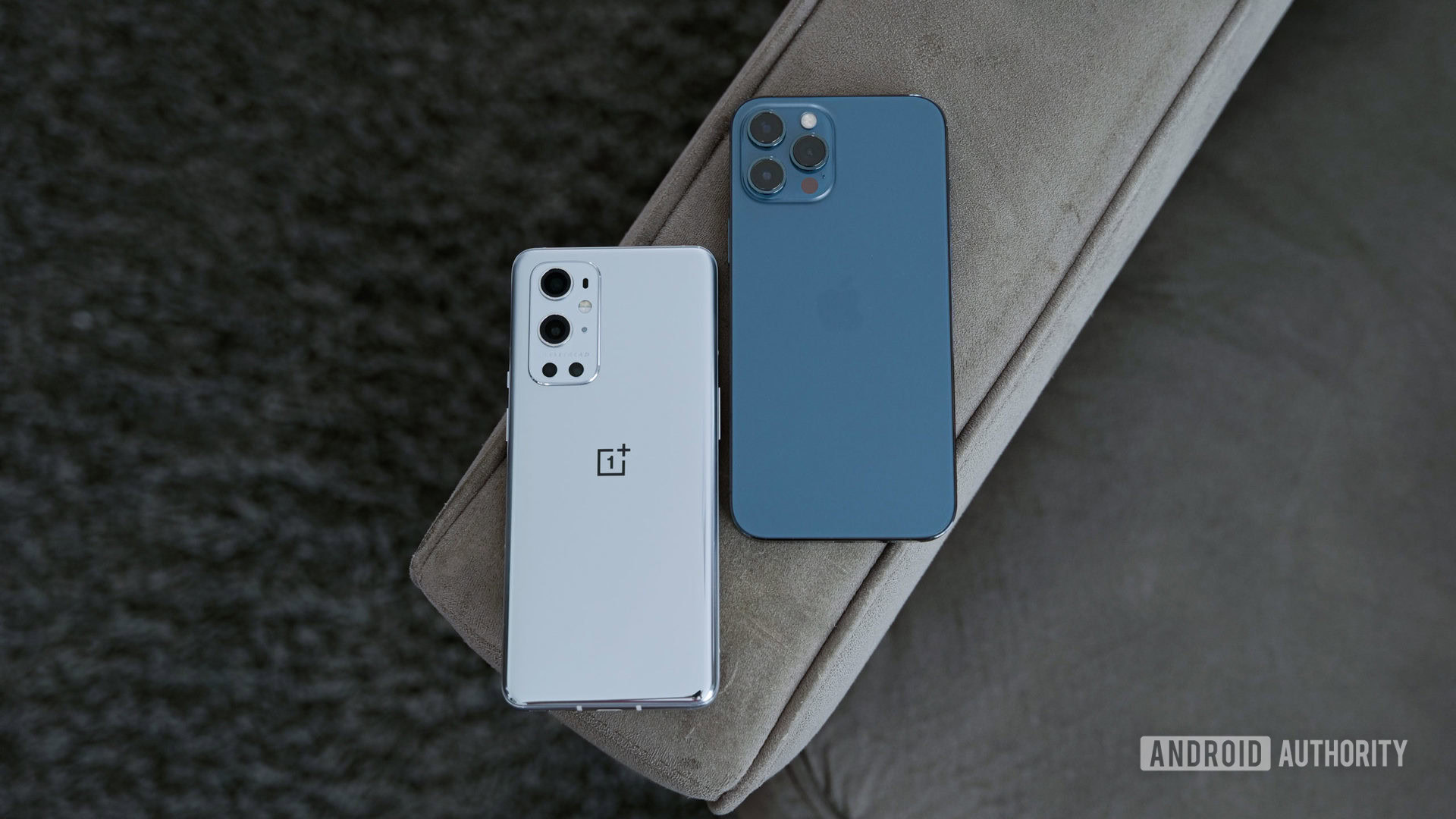Are iPhone buyers more loyal than Android buyers?

Robert Triggs / Android Authority
Eric Zeman
The US smartphone market has reached a sort of balance in the last couple of years. As many people in the US now buy devices running Apple’s iOS as they do buy devices running Google’s Android, giving each platform roughly 50% of the market. It didn’t use to be that way, however; the balance has tipped in favor of iOS recently, allowing it to steal ground from Android.
What’s behind the slow erosion of Android’s market share in the US? Loyalty, according to new data from Consumer Intelligence Research Partners.
Small numbers make a big difference
Robert Triggs / Android Authority
As recently as 2017, Android held about two-thirds of the US market for smartphones, says CIRP’s research, leaving iOS with about one-third of the market. At that time, the Android platform enjoyed a loyalty rating of about 91% while iOS’s loyalty rating was about 86%. That means 91 out of 100 Android device owners remained with the platform when upgrading their phones. Over the last four years, loyalty to the Android platform has shifted very little in the US. Loyalty to iOS, in the meantime, has slowly ticked upward.
“Loyalty and switching help explain some of the change in share of new phone activations, with iOS gaining loyalty in a market with minimal switching,” said Mike Levin, CIRP Partner and co-founder. “In the most recent quarter, Apple had an edge in loyalty, with 93% of prior iPhone owners upgrading to a new iPhone, compared to 88% of Android owners staying with Android. Over several years, iOS gained about five percentage points in loyalty, while Android remained flat. This allowed Apple to steadily increase the iOS share of new smartphone activations.”
Android folks’ loyalty has remained mostly unchanged.
In other words, Android folks’ loyalty has remained mostly unchanged, while iOS users’ loyalty has gone up. Despite the small shift in numbers, the inevitable was bound to happen — a 50/50 market split in the US.
CIRP developed these numbers by surveying 500 people who activated a new phone in the April to June 2021 timeframe. That sample is perhaps a little on the small side, but CIRP’s overall market share findings line up with other research firms. For example, Counterpoint’s data shows iOS’ share of the US market is about 50% over the last year, though it has swung rather wildly from quarter to quarter.
Related: The best Android phones
Brands tell a different story
David Imel / Android Authority
Where CIRP’s data shows us loyalty to Android, in general, has remained mostly unchanged, SellCell’s data says otherwise. SellCell recently polled some 5,000 US residents about their mobile devices and made some interesting findings regarding individual brands.
To start, brand loyalty to Apple is super high at 92%, an improvement of 1.5 percentage points from where Apple brand loyalty was two years ago. This lines up with CIRP’s data. During the same two-year period, however, Samsung saw its brand loyalty drop from 85.7% to 74%. That means more than one in four Samsung users said they planned to buy a different brand of device the next time they upgraded. Most tellingly, 53% of Samsung defectors said they’d switch to an iPhone.
Other Android brands lost loyalty as well. Loyalty to the Google Pixel fell off a cliff, dropping from 84% in 2019 to 65.2% in 2021. Motorola and LG fared much worse, with 71% and 62.6% of owners saying they plan to switch brands come time to upgrade.
Unfortunately, the data from CIRP and SellCell is limited to US consumers; they didn’t poll people outside the US.
See also: 8 things iOS does better than Android
Why have loyalties changed?

Luke Pollack / Android Authority
The most interesting question here isn’t which brand or platform maintained the most loyalty, rather it’s why loyalties have changed at all.
One reason? Privacy. SellCell found that 31.5% of respondents planned to switch from Samsung to an iPhone due to privacy concerns. Apple has ramped up the privacy rhetoric in recent years, to be sure. Another 25.2% of defectors said they’d leave Samsung due to better value for money offered by other brands.
Not all iPhone owners are happy and some do in fact switch to other brands. Some 38% of iPhone owners cited other brands’ better technology as reasons for switching away, with 26.4% preferring other brands’ design language, and 12.9% opting for newer features on the latest Android devices.
But the biggest reason people stick with their smartphone brand? Ecosystem lock-in and fear of change.
Apple may have enjoyed an uptick in loyalty in the US in recent years, but that hasn’t helped its global picture. Apple’s iOS held onto 15% to 17% of the worldwide market for smartphones during the first quarter of 2021, depending on which analyst firm’s numbers you choose to believe. With an approximate market share of 85%, Android clearly dominates compared to iOS on a global scale, and it’s obvious Android users are a loyal bunch over time.
For all the latest Technology News Click Here
For the latest news and updates, follow us on Google News.

